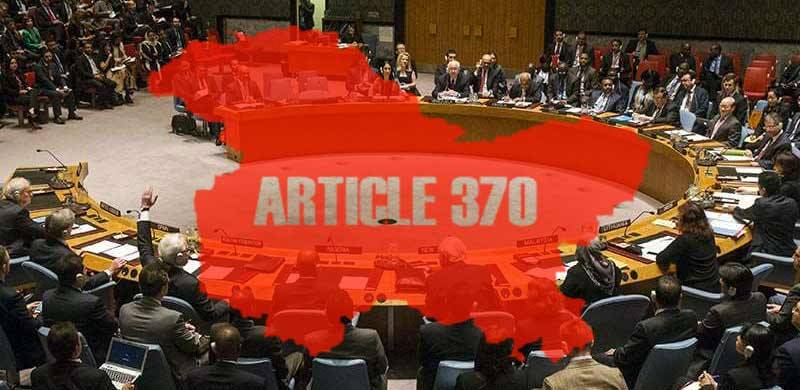
Washington DC: Earlier this month, the Middle East Institute, in collaboration with the Indus think tank, hosted Azad Jammu and Kashmir president Sardar Masood Khan, during his recent visit to the United States. While speaking to diplomats, academics and students at the MEI, Khan stressed that “because of the threats of India, there is a drift towards a war.” He warned that “the entire word should brace itself for the response to such a catastrophe.” He explained the tense situation in Indian-administered Kashmir had created “horrendous human rights violations” and further added that their results “would not remain confined to conventional exchange […] that could escalate to the nuclear level with dire consequences.”
The detrimental impact of nuclear warfare, he warned, would resonate internationally. “The entire world should brace itself for the effects of a nuclear catastrophe.” Calling on the international community to facilitate a resolution he said, “it is the responsibility of the United Nations to help us resolve this issue.”
Khan urged governments to listen to their people in deciding their policy on the Kashmir issue. He emphasized that despite hundreds of people coming out to protest against Indian actions in the cities of Brussels, London and Washington D.C., the governments remained impartial. “How do we break the silence of the Western governments?” he asked. For him, the “challenge” was to encourage the governments to take note of “the plight of the Kashmiris.”
The President of AJK, who was on a three-day visit to the U.S. to raise awareness and support for the Kashmir issue, also called for U.S. lawmakers to voice their support. “The US Congress should also put its weight behind efforts to reverse the unlawful steps India took on August 5, 2019, to subvert the status of Jammu and Kashmir” he said.
Raza Rumi, President of Indus think tank, raised the issue of how nationalisms on both sides were leading to a dangerous situation. However, the foremost step was to urge India to lift the siege of Kashmiris and restore their rights. Rumi also asked the President about the oft-cited issues with the implementation of UN resolutions that needed wider attention and understanding.
Middle East Institute Director for the Afghanistan and Pakistan Program, Marvin G. Weinbaum, moderated the event. He said that the Indian Prime Minister had “gifted” Pakistan the issue of Kashmir. In his view, Prime Minister Modi had inadvertently raised awareness around the Kashmir issue. Weinbaum furhter pointed out that unlike unlike the past, now the American media including the “Washington Post and New York Times are throwing their weight behind India’s siege of Kashmir.” He added: “This is significant because for more than 70 years, Pakistan has been attempting to draw the world's attention to their plight without success.”
He concluded that because of Modi’s actions, the Kashmir issue is now on the worlds radar.
The detrimental impact of nuclear warfare, he warned, would resonate internationally. “The entire world should brace itself for the effects of a nuclear catastrophe.” Calling on the international community to facilitate a resolution he said, “it is the responsibility of the United Nations to help us resolve this issue.”
Khan urged governments to listen to their people in deciding their policy on the Kashmir issue. He emphasized that despite hundreds of people coming out to protest against Indian actions in the cities of Brussels, London and Washington D.C., the governments remained impartial. “How do we break the silence of the Western governments?” he asked. For him, the “challenge” was to encourage the governments to take note of “the plight of the Kashmiris.”
The President of AJK, who was on a three-day visit to the U.S. to raise awareness and support for the Kashmir issue, also called for U.S. lawmakers to voice their support. “The US Congress should also put its weight behind efforts to reverse the unlawful steps India took on August 5, 2019, to subvert the status of Jammu and Kashmir” he said.
Raza Rumi, President of Indus think tank, raised the issue of how nationalisms on both sides were leading to a dangerous situation. However, the foremost step was to urge India to lift the siege of Kashmiris and restore their rights. Rumi also asked the President about the oft-cited issues with the implementation of UN resolutions that needed wider attention and understanding.
Middle East Institute Director for the Afghanistan and Pakistan Program, Marvin G. Weinbaum, moderated the event. He said that the Indian Prime Minister had “gifted” Pakistan the issue of Kashmir. In his view, Prime Minister Modi had inadvertently raised awareness around the Kashmir issue. Weinbaum furhter pointed out that unlike unlike the past, now the American media including the “Washington Post and New York Times are throwing their weight behind India’s siege of Kashmir.” He added: “This is significant because for more than 70 years, Pakistan has been attempting to draw the world's attention to their plight without success.”
He concluded that because of Modi’s actions, the Kashmir issue is now on the worlds radar.
